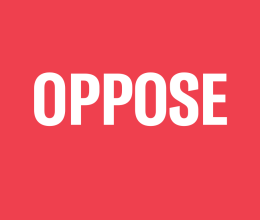Complaint Alleges That WMATA Unlawfully Rejected Controversial Ads
WASHINGTON D.C.-- The American Civil Liberties Union, the ACLU of the District of Columbia, the First Liberty Institute, and the law firm of Steptoe, LLP, today challenged the Washington Metropolitan Area Transit Authority’s (WMATA) advertising restrictions as violations of the First Amendment.
The lawsuit was filed on behalf of WallBuilder Presentations (“WallBuilders”), an organization advocating for Americans to understand their history and the important role religion played in the founding of our nation, which sought to advertise on the side of WMATA Metro buses. WMATA rejected the ads on the grounds that they violated its advertising guidelines, which prohibit advertising “intended to influence members of the public regarding an issue on which there are varying public opinions.” It is also apparent that WallBuilders’ ads violated the guidelines’ prohibition on advertisements “that promote or oppose any religion, religious practice or belief.”
The lawsuit argues that these ad guidelines violate the First Amendment, which prohibits government agencies from discriminating against private speech based on their viewpoint or from imposing rules that aren’t applied consistently. The lawsuit provides many examples of ads about controversial issues that WMATA has accepted, such as recent ads demanding Supreme Court term limits along with ads demanding transparency in hospital prices. WMATA has also accepted ads with religious content, such as an ad for The Book of Mormon musical, which harshly lampoons the Mormon Church and religion in general. The lawsuit shows how the guidelines inevitably lead to discrimination based on advertisers’ viewpoints and are necessarily applied in an arbitrary and unreasonable manner.
This free speech lawsuit is the second filed by the ACLU that challenges WMATA’s advertising guidelines. The 2017 lawsuit, ACLU et al. v. WMATA, documents how WMATA has discriminated against a variety of viewpoints, including an abortion pill ad from the women’s health care collective Carafem, an ACLU ad seeking to display the text of the First Amendment in several languages, an ad for Milo Worldwide LLC (the company of conservative commentator and writer Milo Yiannopoulos), and an ad by People for the Ethical Treatment of Animals. ACLU et al. v. WMATA is still pending, and information on the lawsuit may be found here.
“The case against WMATA is a critical reminder of what’s at stake when government entities exercise selective censorship. The First Amendment doesn’t play favorites; it ensures that all voices, regardless of their message, have the right to be heard,” said Arthur Spitzer, Senior Counsel at the ACLU-D.C. “ACLU defends these suits, regardless of whether it agrees with the underlying message because it believes in the speaker’s right to express it. The government cannot arbitrarily decide which voices to silence in public forums.”
“The First Amendment grants all Americans the right to express their point of view, religious or secular,” said First Liberty Senior Counsel Jeremy Dys. “Rejecting a faith-based advertising banner by labeling it an ‘issue ad,’ while accepting other ads such as those promoting a ‘Social Justice School,’ ‘Earth Day,’ and the highly controversial idea of terms limits for Supreme Court Justices, is clearly hypocritical, discriminatory, and illegal. WMATA must support the freedoms provided in the First Amendment rather than silence Americans through censorship.”
The lawsuit asks the court to declare the WMATA guidelines prohibiting “issue ads” and ads with religious content unconstitutional and to order WMATA to accept and run the WallBuilders advertisements it had rejected and others that would violate these guidelines.
The complaint in today’s case, WallBuilders v. WMATA, may be found here.
The rejected ads can be viewed here.



